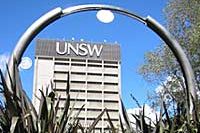|
||||||||||||||||||||||||||||||||||||||||||||||||||||||||
| Science/Social Science - 3935 | ||||||||||||||||||||||||||||||||||||||||||||||||||||||||

This dual degree program, the Bachelor of Science/Bachelor of Social Science, enables students to complete a major stream from those available in Science and in Social Science within the Faculty of Arts and Social Sciences.
For admission to the program, students must satisfy the entry requirements to the Bachelor of Science as well as to the Bachelor of Social Science. For questions regarding the Bachelor of Social Science requirements for the program, students should consult staff in the Faculty of Arts and Social Sciences Student Centre. For questions relating to the Bachelor of Science component of the program, students should consult the Science Student Centre. Program Objectives and Graduate Attributes Please refer to the program objectives as listed for the 3970 Bachelor of Science program and the 3420 Bachelor of Social Science program.
A total of 192 units of credit is required to complete this dual degree program. Students must satisfy the following requirements for the Bachelor of Science and Bachelor of Social Science components. Where the requirements for the two programs are completed in less than 192 units of credit due to overlapping courses, students must make up the remaining units of credit from the Faculty of Arts and Social Sciences or the Faculty of Science.
Requirements for the Bachelor of Science in dual degree mode.
When taken as part of a dual degree, a Bachelor of Science is comprised of 96 units of credit which includes:
Academic rules relating to the Bachelor of Science in dual degree mode are as follows:
1. Students must complete a minimum of 96 units of credit for the Bachelor of Science; 2. Students must complete at least one approved Bachelor of Science major, and this must be declared before enrolling in level II courses. Details of approved Bachelor of Science majors and how to declare a major can be found on the 3970 Bachelor of Science program page; 3. In addition to the courses required for a student's chosen major, students must take 'science' courses so that the major plus 'science' courses total 96 units of credit. Details of what courses consitute 'science' courses can be found in Table 1 on the 3970 Bachelor of Science program page; 4. Students must complete at least 24 units of credit of science level I courses; Most majors in the Bachelor of Science already satisfy this requirement, for example, the Molecular Biology major requires BIOS1101, BABS1201, CHEM1011, CHEM1021 and 6 units of credit of Mathematics. This is a total of 30 units of credit of science level I courses, therefore, no more level I science courses are required. Where a major does not include at least 24 units of credit of science level I courses, students will need to choose additional level I science courses to bring the total to 24 units of credit. For example, Psychology requires PSYC1001 and PSYC1011, therefore, students will need to choose an additional 12 units of credit of science level I courses. These science level I courses count towards the 96 units of credit requirement at rule number 3. 5. No student may commence level II courses until 30 units of credit of level I courses have been successfully completed. (This is 30 units of credit of courses taken towards the entire dual degree and not just courses for the Science component); 6. Students may commence level III courses upon successful completion of 72 units of credit. (This is 72 units of credit of courses taken towards the entire dual degree and not just courses for the Science component); Students wishing to complete a double major in the Bachelor of Science when taken as part of a dual degree with another degree program at UNSW, should be aware that it will be very difficult to complete two majors within 96 units of credit. Therefore where a dual degree student would like to undertake a double major, they should be aware that it may involve extra time and cost to complete, and may have visa implications for international students. Requirements for the Bachelor of Social Science in dual degree mode.
When taken as part of a dual degree, a Bachelor of Social Science is comprised of:
Social Science core requirements
The following compulsory courses (42 UOC) form the Social Science Core: First Year Second Year
Third Year
Available Social Science majors
For details on the majors available in the Bachelor of Social Science, please see the 3420 Bachelor of Social Science program page. ACADEMIC RULES To qualify for the award of a Bachelor of Social Science at Pass level, a student must:
For program rules and requirements, please refer to the Program Structure section above.
For information regarding fees for UNSW programs, please refer to the following website: https://my.unsw.edu.au/student/fees/FeesMainPage.html
Eligible students may proceed to Honours in either the Bachelor of Science or the Bachelor of Social Science. Students may commence the relevant Honours program only when they have completed the requirements for the equivalent of a single degree for that program (ie where a Science student in a dual degree would like to commence Honours they must have completed at least the 96 UOC Science core degree plus 48 units of credit for the Social Science degree such that a total of 144 UOC has been completed). For further information relating to Honours in these two programs, please see 3970 Bachelor of Science program and 3420 Bachelor of Social Science program.
Students may take the Geography major in either the Bachelor of Arts or the Bachelor of Social Science. It cannot be awarded in both degrees. Where a student takes the Geography major in the Bachelor of Social Science the Geography courses will double count towards the Science degree as 'science' electives.
Area(s) of Specialisation
|
||||||||||||||||||||||||||||||||||||||||||||||||||||||||


